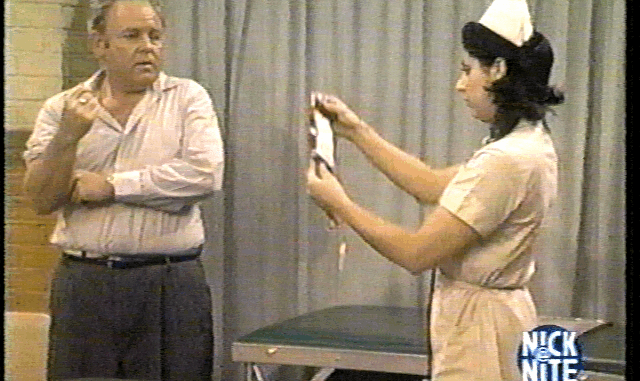
New York, NY – Among the many groundbreaking moments in American television history, few sitcoms have tackled uncomfortable truths with as much boldness and humor as All in the Family. In its Season 1 episode titled “Archie Gives Blood,” the show masterfully balances comedy and commentary, placing bigotry under the microscope — all within the sterile walls of a blood donation center.
A Simple Act, A Deep Discomfort
The episode begins with Archie Bunker — the famously opinionated, working-class conservative — being reluctantly convinced by his wife Edith to donate blood. For Archie, it’s not about helping humanity; it’s about getting it over with and going home. But the real drama unfolds when Archie is faced with the realization that his donated blood might end up saving the life of someone who isn’t white.
In true All in the Family fashion, the writers use this moment to unearth Archie’s deep-seated racial prejudices, revealing not only his fears but also the irrationality of such views. When Archie learns that the donation process is anonymous and his blood could be mixed in with anyone else’s — including Black or Jewish donors — his discomfort becomes comedic but painfully telling.
Humor That Bites — And Educates
What makes “Archie Gives Blood” so powerful isn’t just the laughter it provokes, but how it forces the audience to confront societal norms. Set in 1971 — just a few years after the peak of the Civil Rights Movement — the episode challenges viewers to reflect on what it means to be part of a shared humanity.
Carroll O’Connor’s performance as Archie is pitch-perfect: simultaneously infuriating and oddly endearing. He is a product of his time, and while his views are outdated, the show never lets him off the hook. Instead, All in the Family holds a mirror to the audience, asking: how much of Archie lives in us?
A Legacy of Honest Television
“Archie Gives Blood” remains relevant decades later because the prejudices it tackles are, unfortunately, still with us. By couching these conversations in comedy, All in the Family made them more accessible — and perhaps, more impactful. The brilliance of the episode lies in its ability to draw laughs while forcing viewers to question their assumptions.
At a time when television rarely strayed from safe subjects, All in the Family took risks. “Archie Gives Blood” is proof that a sitcom can be both entertaining and transformative — a reminder that the small screen, at its best, has the power to change hearts and minds.